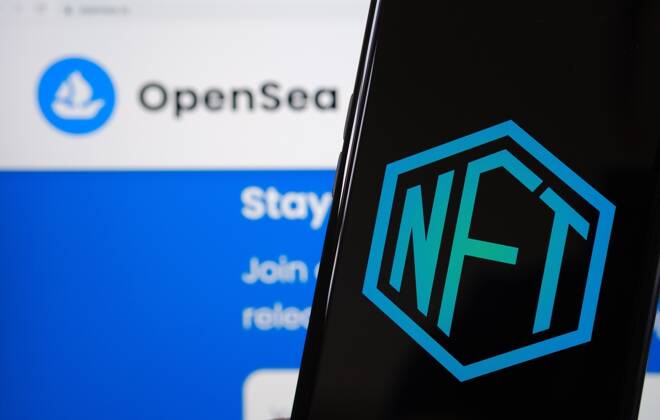Advertisement
Advertisement
Community Backlash Forces OpenSea to Reverse Decision on NFT Mints
Updated: Jan 28, 2022, 13:33 GMT+00:00
OpenSea has revealed that it is backtracking on its decision to reduce the number of NFT mints creators can make on its platform.
On Thursday, the leading NFT marketplace, OpenSea, took a crucial decision of reducing the number of NFTs each creator can mint on its platform.
OpenSea Reveals new Mint Limit
The NFT platform decided to reduce the NFT mints to 50 due to the spate of reported issues on the platform, but this decision didn’t go down well with members of its community, forcing it to backtrack the decision.
OpenSea revealed that it had updated its collection storefront contract limits to only allow five collections per NFT wallet or user and a maximum of 50 items or NFT collectibles in each collection. It continued that “we know this change may impact our community, so please don’t hesitate to share how this affects your creative flow.”
The limit means that users on the platform can not mint more than 50 NFTs. However, if a user has minted beyond this limit before, he/she would no longer be able to mint more NFTs.
OpenSea Backtracks, Lifts Limit
According to a Twitter announcement, in response to several complaints and heavy criticism that this issue has generated, the number one NFT marketplace has now reversed the limits:
To all the creators in our community impacted by the 50 item limit we added to our free minting tool, we hear you, and we’re sorry. We have reversed the decision. But we also want to offer an explanation.
While explaining the rationale behind the decision in the new announcement, the platform said it took that decision to stop the misuse of its free minting tool, which is often used to mint plagiarized artwork and fake collections.
OpenSea is the leading NFT marketplace and offers a free tool for creators to mint with its smart contract. The platform hosts several Ethereum-based and Polygon-based NFTs.
Available information in a leaked screenshot by a notable blogger has hinted that Solana NFTs might also be traded on the platform soon.
Although the platform announced it is working on other alternative solutions to fight this issue, it is worth adding that the persistent cases of plagiarism, spamming and fake artwork could impact new projects and cause mistrust of the platform to grow.
About the Author
Oluwapelumi Adejumoauthor
Oluwapelumi is a firm believer in the transformative power power Bitcoin and Blockchain industry holds. He is interested in sharing knowledge and ideas about how the industry could play a pivotal role in the emerging financial system. When he is not writing, he is looking to meet new people and trying out new things.
Advertisement
